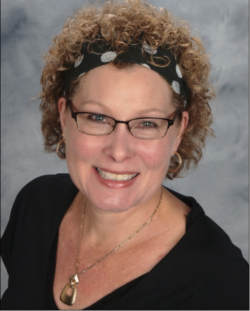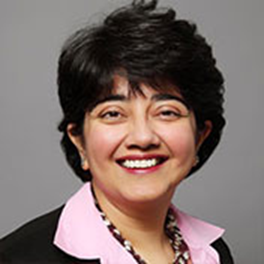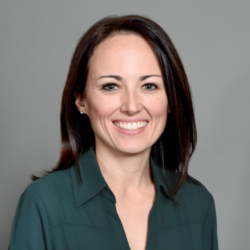Faces of Pride: Researchers Working Towards the Advancement of LGBTQ+ Persons
POSTED June 28, 2021
|Gender Equality and Women’s Empowerment
By Nigel Gibbs, RTAC Communications Manager
Lesbian, Gay, Bisexual, Transgender and Queer (LGBTQ+) Pride Month is celebrated each year in the month of June in recognition of the 1969 Stonewall Uprising in Manhattan, a tipping point for the Gay Liberation Movement in the United States. Much has happened since the catalyst 1969 protests and attitudes towards LGBTQ+ Americans have shifted, where openly gay Americans are holding public office, same-sex marriages are legal and LGBTQ+ persons are offered many of the same rights and privileges as their heterosexual counterparts. Nonetheless, stigmas, policies, and attitudes prevent LGBTQ+ persons from enjoying life with the freedom and safety their cis-hetero counterparts get to enjoy in the U.S. and elsewhere. This month’s commemorative feature will shine a light on some of the challenges faced by members of this community through the diligent work of some of the Research Technical Assistance Center’s network members. These different perspectives on the struggles facing the LGBTQ+ community are reflective of their unique diversity.

Robin Lin Miller, PhD, is a professor of psychology at Michigan State University, whose areas of expertise include HIV/AIDS prevention and care, sexual and gender minority health, grassroots and civil society responses to HIV/AIDS, and stigma and discrimination reduction.
Dr. Miller’s long career working with the LGBTQ+ community began in the mid-1980s as an evaluator at the Gay Men’s Health Crisis (GMHC), the first AIDS-focused advocacy and civil society organization in the world. Her work with GMHC coincided with the early days of the AIDS epidemic in New York City, when much was unknown, and outcomes were usually bleak. At GMHC, she conducted multiple internal evaluations of diverse homegrown programs and advocacy efforts to address the rapidly advancing HIV epidemic and its harmful effects on gay and bisexual men in New York.
Today, Dr. Miller continues to evaluate HIV-related interventions for LGBTQ+ people and conducts research on their needs. She remains a staunch advocate of community-led and designed services which she believes are often understudied and are critical in addressing issues in minority communities.
In her role as a member of the American Psychological Associations Task Force on Appropriate Therapeutic Responses to Sexual Orientation, she conducted the report’s research synthesis on conversion therapy. The review found no evidence conversion therapy is effective and evidence it can be damaging. Her research proved useful, as a growing number of U.S. states have issued bans on conversion therapy with minors. In turn, “it also prompted other professional associations around the world to conduct similar reviews and develop professional guidance on affirming ways to respond to LGBTQ people seeking mental health care.”
When asked what Dr. Miller believed to be the biggest obstacle facing the LGBTQ community, she pointed to stigmas.
“Stigma is well-implicated as causing significant inequalities in health and well-being of LGBTQ people. One study in the U.S. showed living in communities high in structural stigma reduced LGBTQ people’s lifespan by an average of 12 years. Stigma maintains and reinforces day-to-day discrimination and human rights violations. Research demonstrates that stigma is greater in countries that criminalize sex between men, which in turn results in lower utilization of HIV and sexual health care services and other negative consequences when compared to non-criminalizing countries.”
“A major contribution of the research is to document how advocacy to promote access to health care works in hostile contexts. Studies like this are rare,”Dr. Miller
The criminalization of sex between men and public decency laws often accompanies stigma, discrimination, and violence that restricts gay and bisexual men’s and transgender women’s access to HIV prevention, testing, and treatment. This was made evident in the recent completion of an in-depth two-year investigation of a community-led transnational advocacy partnership to address these same issues in Burundi, Cameroon, Côte d’Ivoire, Dominican Republic, Ghana, Jamaica, and Zimbabwe. “A major contribution of the research is to document how advocacy to promote access to health care works in hostile contexts. Studies like this are rare,” stated Dr. Miller.
The path to a better tomorrow for the LGBTQ+ community is a challenging one for Dr. Miller. “So many countries (and U.S. states) that have encoded LGBTQ prejudice in law, do not fulfill the promise of their constitutions or abide by agreements to follow human rights conventions, is clearly an obstacle to ending the HIV epidemic and to creating equitable societies. It is not an impenetrable obstacle. Change here is proceeding slowly, but it is still proceeding.” The Michigan State psychology professor encourages people to support community-led efforts and the development of allyship across different sectors is equally important. Allyships help change institutional practices and erode the prejudices that lead to dehumanizing practices. “Community-led efforts are essential in this process because LGBT people are the ultimate authority on their own experience. Community-led efforts are also critical because in hostile contexts, the people who will bear the brunt of backlash are LGBT people. It is simply too easy for an ally to do something that endangers the community or proves itself counterproductive.”

Ritu Nayyar-Stone, PhD, is a Principal Research Scientist with NORC at the University of Chicago. The economist has led numerous research studies and her areas of expertise include monitoring, evaluation and learning, local governments and decentralization, and vulnerable populations.
As the Project Director for The Lesbian, Gay, Bisexual, Transgender, and Intersex (LGBTI) Global Development Partnership (GDP), she found the experience to be particularly informative. The innovative public-private partnership is between the United States Agency for International Development (USAID), Swedish International Development Cooperation Agency (SIDA), and several other resource and implementing partners and is currently active in Latin America and the Caribbean, sub-Saharan Africa, the Balkans, and South Asia. This partnership empowers LGBTI communities by strengthening the capacity of LGBTI leaders and civil society organizations; training LGBTI leaders to effectively participate in democratic processes and operate organizations; conducting research to inform national, regional, and global policy and programs; and promoting economic empowerment through enhanced LGBTI entrepreneurship and business development.
Dr. Nayyar-Stone’s evaluation of the LGBTI Global Development Partnership assessed how and to what extent the GDP was able to support and empower LGBTI individuals and civil society organizations in low- and middle- income countries seeking to improve their own social standing, find equity and ultimately improve their lives.
“Other than a few countries where the LGBTQ community are legally recognized, there remain large areas in the world where the expression of these identities is criminalized. Members of this community face systemic stigma, violence, and discrimination,”Dr. Nayyar-Stone
According to Dr. Nayyar-Stone, “The evaluation helped create a deeper understanding of the activities and impact of the GDPs two Global Development Alliances in Columbia, Serbia, South Africa, Sweden, and the U.S.” The evaluation method utilized a combination of document review, key information interviews, and Most Significant Change (MSC) data collection methods, helped beneficiaries develop 35 MSC stories to document the GDPs impact, and suggested ways to protect LGBTI people in developing countries from violence and discrimination.
The NORC principal research scientist believes despite the advances in LGBTI rights in recent years, there is still much to be desired. “Other than a few countries where the LGBTQ community are legally recognized, there remain large areas in the world where the expression of these identities is criminalized. Members of this community face systemic stigma, violence, and discrimination,” said Dr. Nayyar-Stone. “Even within the U.S., certain states are more welcoming and accepting of LGBTQ persons, but the transgender community faces the longest and most difficult path before they are fully accepted in society.”
Dr. Nayyar-Stone expressed, “With all the problems facing the world today – death and stress caused by climate change, pandemics, racial discrimination, and environmental challenges, individuals should have the freedom to find love, solace, and comfort in another, unrestricted by gender.”
The road to a more inclusive and accepting society of LGBTQ persons remains a long way away. Dr. Nayyar-Stone emphasizes the need for society to look beyond the sexual orientation or gender identity of individuals, empowering them to contribute to society based on their skills, not holding them back due to their orientation. “While programs such as the GDP have had positive impacts on beneficiaries, including 1) confidence building, 2) access to networks that reduced feelings of isolation and unlocked opportunities for organizing, and 3) a sense of personal empowerment and ability to advocate for protections and rights, a lot more can be done.”
Aid and assistance work in the LGBTQ community must be “highly tailored to the unique context and needs in each country.” One of the gaps in programming for the LGBTQ community remains in, “Programming that focuses on providing psychosocial support and emergency response grants to LGBTI individuals/organizations as well as research and economic empowerment opportunities. Efforts need to target the effects of intersectionality, understanding the complex ways that having multiple marginalized identities compounds problems faced by vulnerable populations.”

Ashley K. Randall, PhD is an Associate Professor in counseling and counseling psychology at Arizona State University, whose areas of expertise include stress and coping, interpersonal emotion dynamics, and romantic relationships. Much of her work seeks to understand and help close health disparities for same-gender couples, with a focus on stress communication and dyadic coping between partners, particularly specific to sexual minority stress. She notes:
“Lesbian, gay, and bisexual (LGB) individuals experience psychological and relationship disparities as compared to heterosexual individuals, including higher rates of affective disorders and risks for depression and anxiety disorders 1.5-2.5 times higher compared to heterosexual individuals. In their romantic relationships, same-gender couples experience higher rates of relationship dissolution and relationship cycling (i.e., on-again, off-again patterns), which may be indicative of limited resources to cope with stress.”
LGBTQ+ couples face challenges rooted in the systemic injustices that marginalized, and traditionally underrepresented, communities have historically faced. Dr. Randall’s research has demonstrated the spillover and crossover of stress between partners in same-gender couples and provided evidence that dyadic coping – partners’ ability to cope together – may help to preserve relationship quality and psychological health in the face of sexual minority stressors as well as typical daily hassles for same-gender couples. “Members of the LGB community experience poorer psychological health compared to heterosexual individuals. These disparities can be explained by the unique chronic sexual minority stress experienced by living in a heterosexist society.” Sexual minority stressors can often lead to relationship problems that lead to higher rates of relationship dissolution compared to heterosexual couples.
“Members of the LGB community experience poorer psychological health compared to heterosexual individuals. These disparities can be explained by the unique chronic sexual minority stress experienced by living in a heterosexist society.”Dr. Randall
The ASU professor notes that among the obstacles facing the LGBTQ+ community, many often lump sexual and gender minorities as a single demographic group. “There is a call to action among researchers, clinicians, and policy makers to disentangle what has commonly been referred to as the ‘LGBTQ’ community, which includes different gender and sexual orientation identities.” She encourages those curious about sexual orientation and gender identity to refer to the American Psychological Association’s website to learn more about the topic.
Dr. Randall underscores the importance of acknowledging the individual (intrapersonal) and relational (interpersonal) factors that may exacerbate or mitigate experiences of stress, especially stress that is associated with one’s marginalized identity in living in a heterosexist society. “Recognizing the systems in which we live – from our family to our communities –research is encouraged to continue to examine how experiences of minority stress can impact our social relationships, and, in turn, how we can turn to our social relationships during times of need, especially when community resources are low.”
For Dr. Randall, the path towards reaching a more equitable and just world for the LGBTQ+ community is a journey. “I like to reflect on [Bobbie] Harro’s (2008) cycle of liberation, wherein we, as a global community, can engage in specific actions to engage in social change to start the critical transformation process.” The cyclical process explores the ways that people can work towards liberation within oppressive environments. Harro (2008) suggests that as people begin to understand their oppression and/or their roles within the hierarchy of oppression, they can then create social change as they work towards empowerment and liberation.

